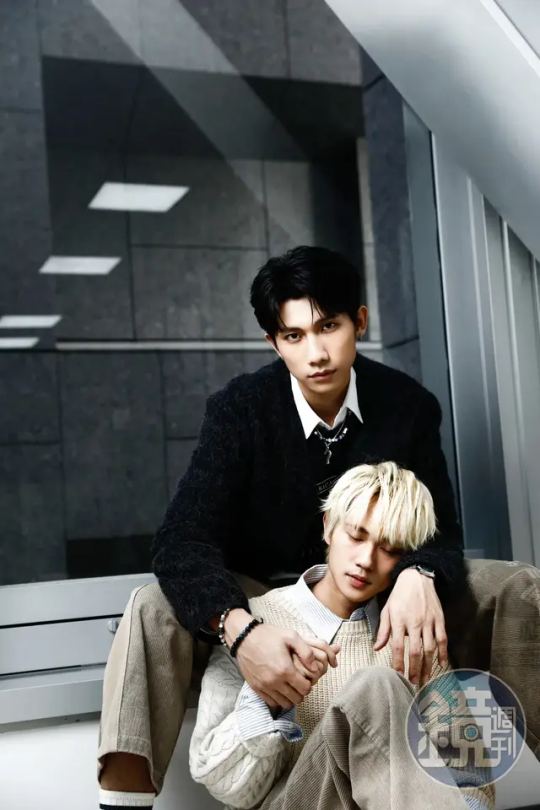#a bl natural
Photo
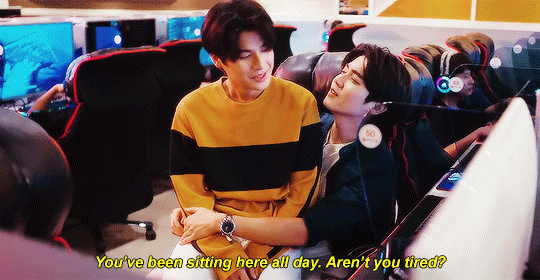

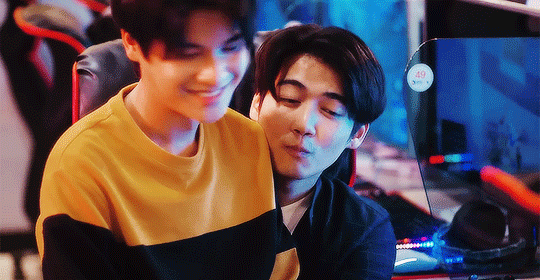
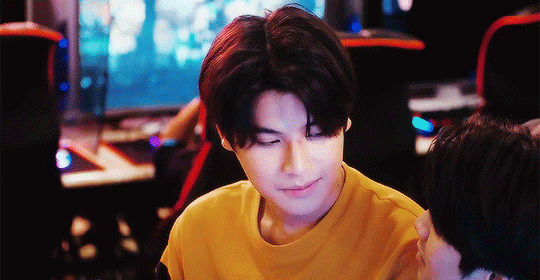
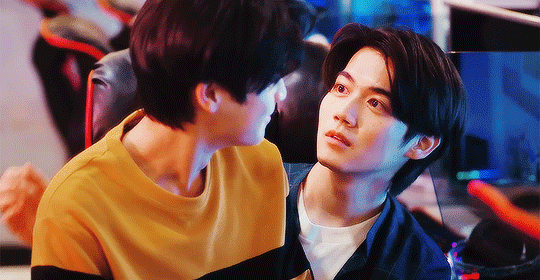
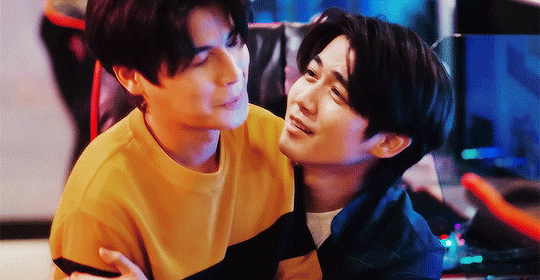

“can I get another one?”
#a boss and a babe#a boss and a babe ep5#zo x thi#ohmfluke#fluke pusit#Ohm Thiphakorn#gmmtv#thai bl#bl drama#STOP theyre so cute im gonna have a heart attack#homeboy fluke being out there again stealing all of our hearts#i cant#he has chemistry with everyone#a bl natural
666 notes
·
View notes
Text
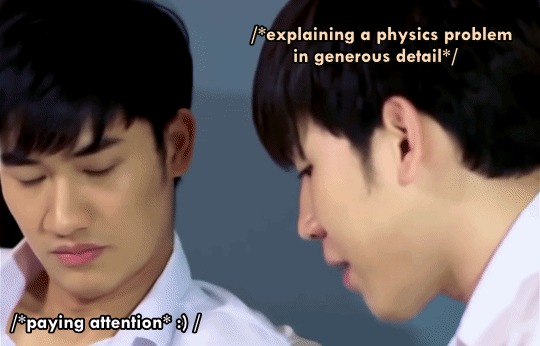
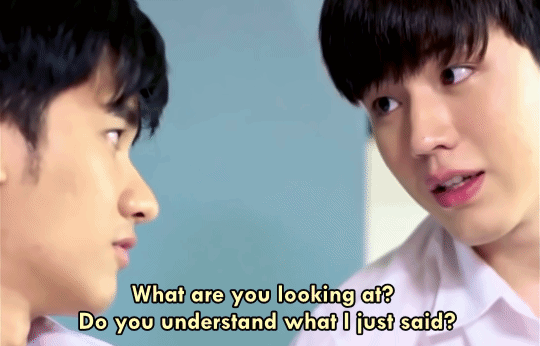
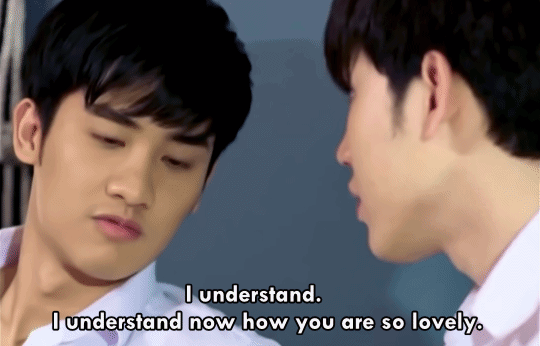


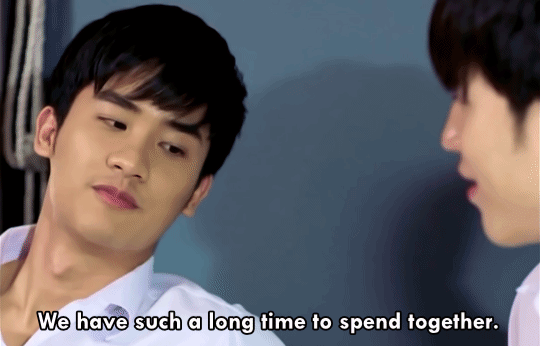
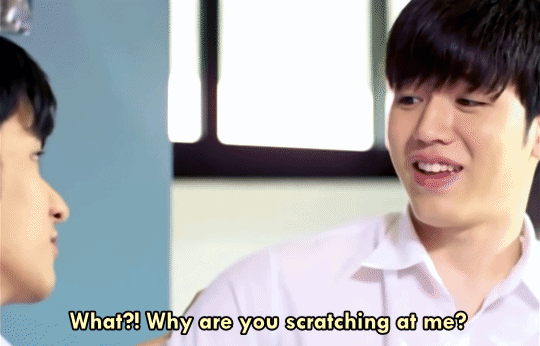

Pete & Kao [Tay Tawan & New Thitipoom] (Kiss Me Again, 2018)
bonus progress report:
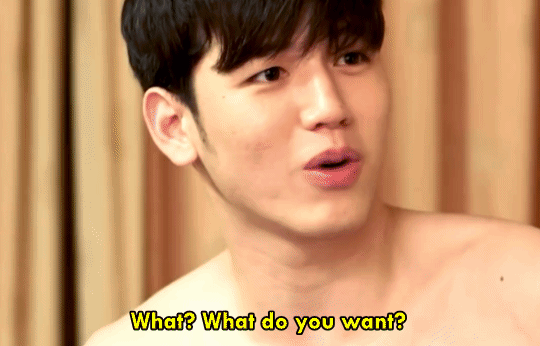
#'why are you scratching at me' might be one of the most emblematic lines depicting the nature of their relationship#petekao#tay tawan#new thitipoom#thai bl#gmmtv#kiss me again#dark blue kiss#kiss the series#taynew#my gifs#yo mismo#ไทย
265 notes
·
View notes
Text

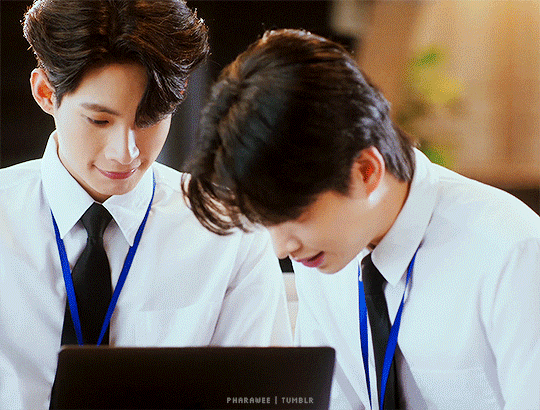
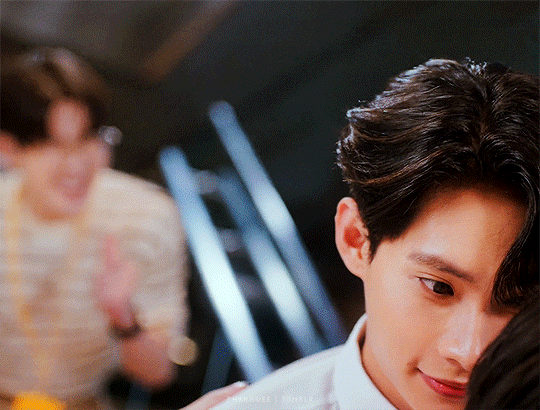


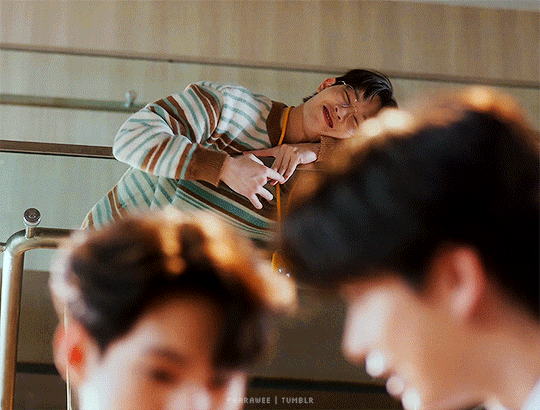

—This must be MaiGus for sure! I'm going to be a middleman again. You can count on me!
#middleman's love#the middleman's love#middleman's love the series#yim pharinyakorn#tutor koraphat#tutoryim#maijade#tai thanaphat#middlemansloveedit#thai bl#thai drama#bl drama#bl series#my edits.#dorks in tv shows must always wear stripes#it is the law#jade just thinks he's so clever#he thinks he's playing 3d chess when he's just constantly rolling natural 1s but the gm really really likes him
271 notes
·
View notes
Text

KINNPORSCHE TWO YEAR ANNIVERSARY EVENT
— Ep 9: Favourite Outfit
#sorry this is so grainy such are the sacrifices we must make for art#anyway this turned out sooo cute exactly how i wanted it#if u know me u know i love this outfit. i have and i will write extensive dm meta abt it and then cry abt his earrings. due to my nature#altho i gotta say shoutout to the orange overall that one truly is my brand as well#vegaspete#pete#kinnporsche#kinnporsche the series#bl shows#my gifs#userboots#taggingmarion#saturntracks#kpanniversary2024
118 notes
·
View notes
Text
#bl drama#fantasy books#messy aesthetic#barack obama#harry#alt aesthetic#magcon#female writers#subliminals#dave chappelle#naturism#Julia Kelly#bunny girl#白丝#nicole richie
123 notes
·
View notes
Text
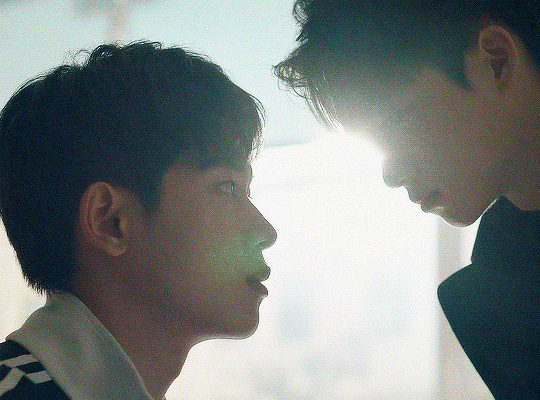




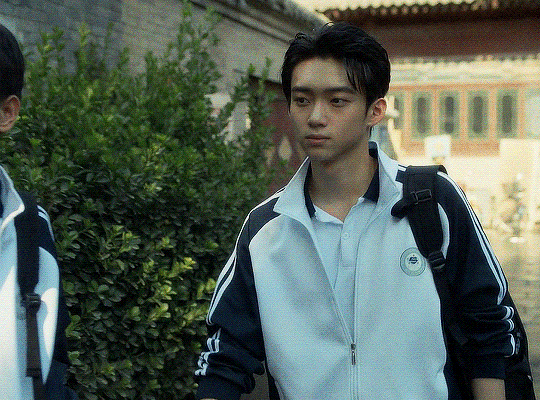
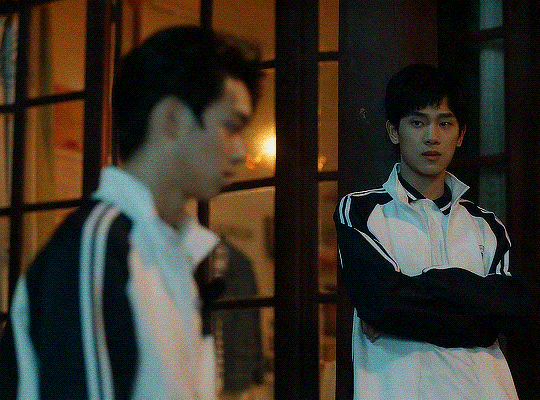



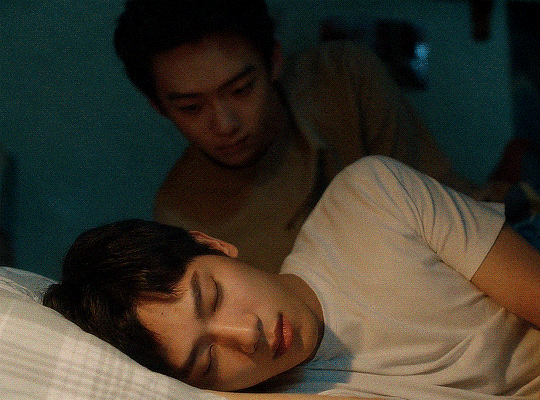


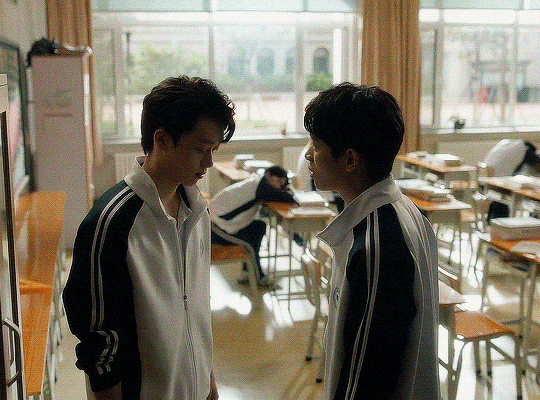
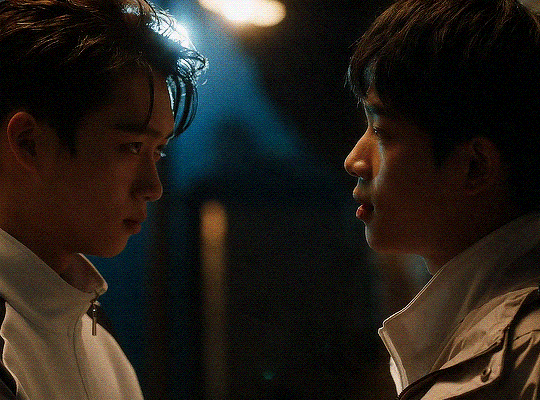
"Who said I hated him?"
STAY WITH ME (2023).
Episode 1 -> Episode 8.
#stay with me#asianlgbtqdramas#asiandramasource#asiandramanet#dailyasiandramas#dramasource#cdramasource#cdramanet#cdramaedit#*#faiza gifs#god i LOVE them i LOOOOVE them.#rewatching this whilst making these gifs actually made me realise the lens with which theyre shot through .....#it emphasises their closeness SO much SO naturally.#they just gravitate toeards one another and the camera does SO WELL to pick up on that and create this level of#intimacy between them its truly WONDERFUL work.#'its not bl' it is. shut up. honestly.#anyway this is for like the 3 people on here who are watching this show: i love yall.
308 notes
·
View notes
Text
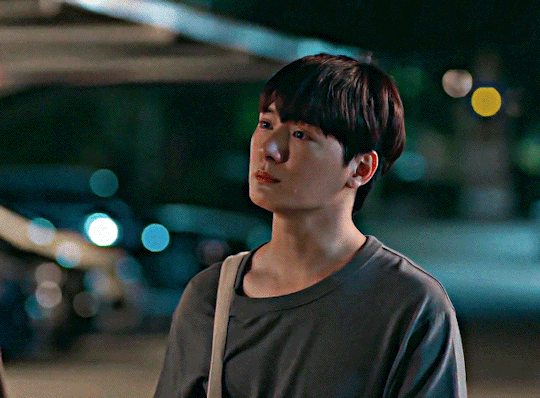
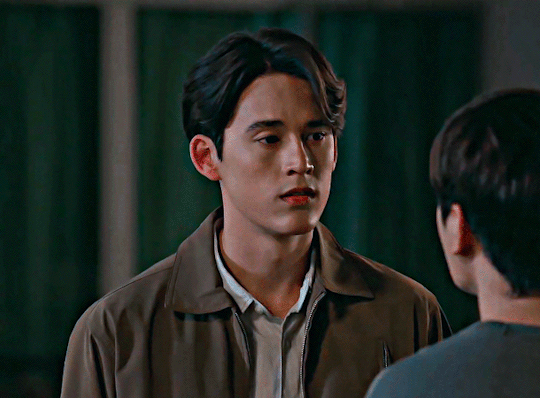
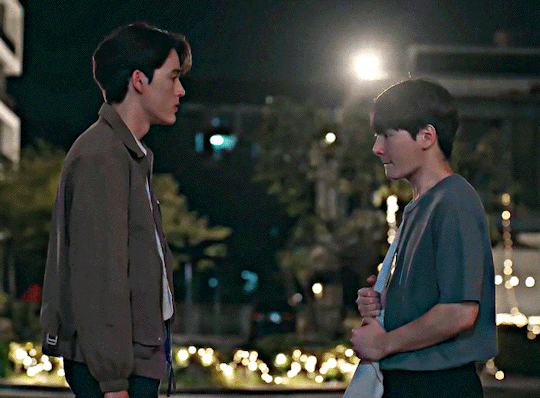
episode 8 preview
#this was the cutest shit i've seen in a while so naturally i had to do it#be my favorite#be my favorite the series#bmf#asianlgbtqdramas#thai drama#thdrama#thaidramaedit#thai bl drama#thai bl#gmmtv series#pisaengkawi#fluke gawin#krist perawat#vx:gifs#vx:tv:bmf
295 notes
·
View notes
Text


P' Aof instructing JimmySea on set
#last twilight#thai drama#thai actor#p aof#jimmysea#jimmy jitaraphol#sea tawinan#thai bl#mhokday#last twilight the series#i came to be a huge fan of this director's#I feel humanity and something like his philosophy in human nature in his series
85 notes
·
View notes
Photo
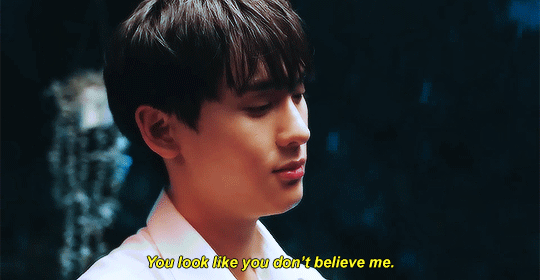

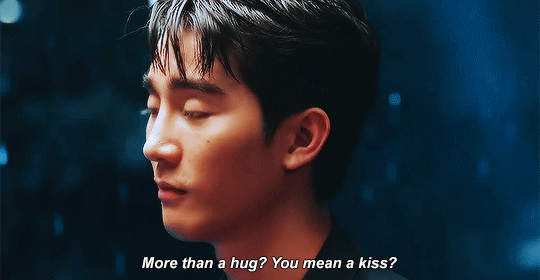


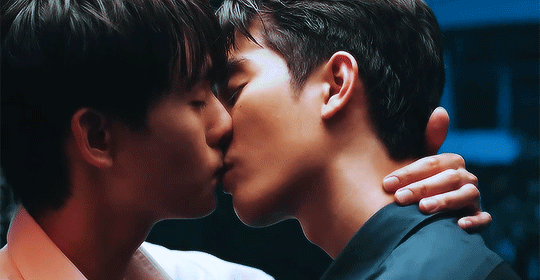

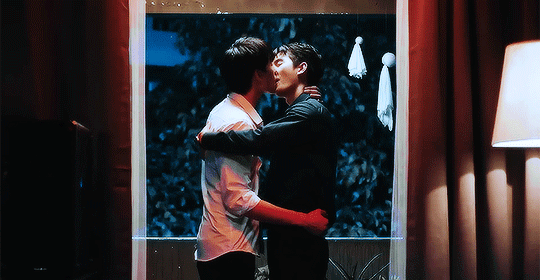
“I told you I like to win.”
#a boss and a babe#a boss and a babe ep2#forcebook#guncher#Force Jiratchapong#Book Kasidet#gmmtv#thai bl#bl drama#this scene was terrible so naturally i had to gif it#jdshgjkdfh#i guess the kiss could be worse but we also know they can do better#so what is this??? lmao#New i blame this on you#why
308 notes
·
View notes
Text



JEFF NATHADEJ 17.04.24
#jeff nathadej#thai actors#love mechanics#future the series#cast#nature#im not immune to thighs#bl tattoos#photos taken before the invention of shirts#blmpff
32 notes
·
View notes
Text
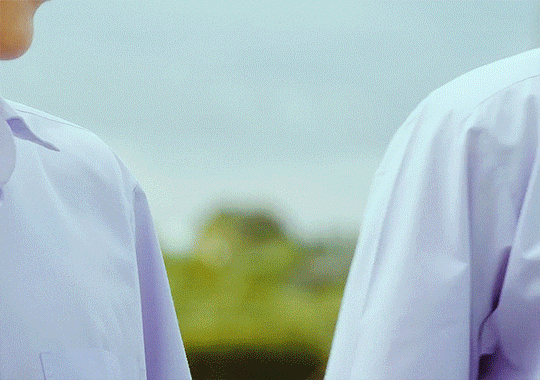



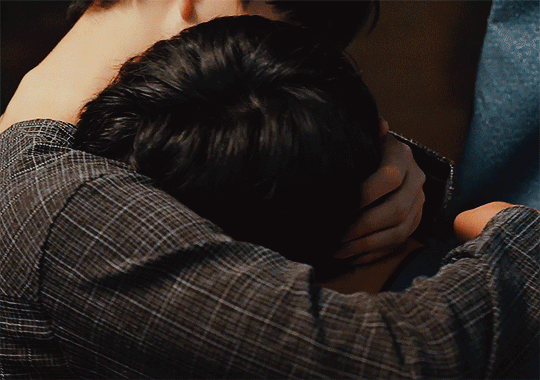
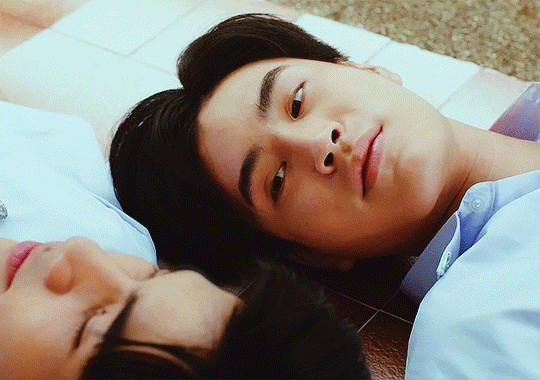
You're talking like you already have someone you like.
#my school president the series#my school president#fourth nattawat#gemini norawit#geminifourth#tinngun#myschoolpresedit#thai bl#thai drama#bl drama#bl series#my edits.#the confession was so unexpected and soft and natural#i really love this show so much#it's the feelgood bl we all deserve
631 notes
·
View notes
Text

The tiny, smirking, little moment of these two and I am thrilled to see them already. This is a hatefuck waiting to happen and it isn't going to be peaceful and it isn't going to soft and someone is gonna get themselves slammed into a wall and punched before they get kissed and I haven't decided who yet.
#dangerous romance#dangerous romance the series#bl series#bl drama#thai bl#thai drama#thai series#thaibl#asianlgbtqdramas#asian lgbtq dramas#thai bl series#thai bl drama#gmmtv series#gmmtv#gmmtv bl#gmmtv boys#gmmtv drama#could i go look their names up yes#am i going to no#i will learn their names when i learn their names through natural acquisition in the show
120 notes
·
View notes
Text
AHH JUST FUCK IT—ART/LORE-ISH DUMP!!

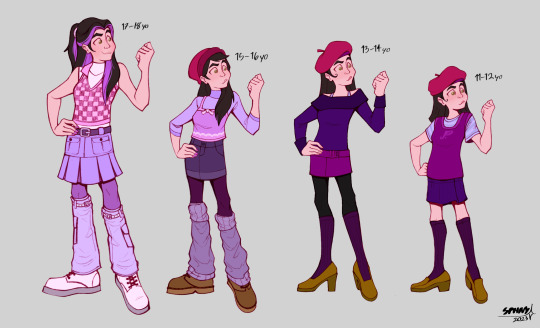

Literally my last three recently finished(enough) pieces of 2023
Just for a recap—aka officially telling y’all what’s been up with me—
You see, along side my RBA-esque storyline will be other separate stories that kind of take place at the same time. Sort of, maybe, has a Trollhunters kinda timeline, or something? Let me just break it down into the main drafting titles(pending) I decided to give each sideplot:
- Roll Call Rescue Recruits: Some young transforming individuals attend Rescue Bots Academy, stationed on Griffin Rock and get up to some waaakcy hijinks with their new classmates while training to become Rescue Bots.
- Radiance In Disguise: A spoiled brat has to live with a rustic antique collector and his son, ever since her mother was arrested, and now her mother’s old enemies would have to go through giant alien robots if they even want to lay a finger on her.
- Reach Out To Reassemble: There’s a new Delinquent Rehabilitation Program in succession, and now it’s up to two bots to coach two young Decepticon criminals out of their violent habits; or else it’s prison for them.
None of these are in particular order by the way.
At least I think they aren’t.
#OOF#I’ve been trying and failing to hold this stuff back in my big ol brain basket for a bit#I was like ‘I’ll wait until I’ve fully fleshed it out and bla bl blah’#of course I naturally derailed and just said fuck it#here’s the basics of what I’ve been thinking about#also I’ve just completely given up on the war backstory cause I’m an indecisive little punk#that’s not true#I’ve just dumbed it down to —#THE WAR ENDED AFTER OPTIMUS AND MEGATRON DIED#and that’s about it#also yes I do have a certain appreciation for alliteration#sphny arts (𖦹w𖦹)•*°⊹#sphny alternates universe (𖦹ㅁ𖦹)•*°⊹#sphny speaks (𖦹<𖦹)•*°⊹#tf fan continuity#transformers bold bright brisk#transformers#maccadam#maccadams
53 notes
·
View notes
Text
Time and Grief in Eternal Yesterday
Eternal Yesterday (Eien no Kinou) is an astonishing show. It is one of the most visceral explorations of grief, letting the audience sit with the feeling of it, that I have seen on screen for a long time. I especially loved how it explored the experience of time while grieving.
Grief alters time. It changes your internal sense of time. It takes you out of equilibrium with everyone who is not experiencing grief with you. The world moves on. People move on. People forget. The clocks don't stop despite our pleas. Grief bisects time; events become labeled Before and After. Everything reorients around it.
This disorientation of time is what Eternal Yesterday conveys so powerfully, both in its magical realism conceit and in its technical structure and pacing.
First, I would also like to talk about a poem. @bengiyo also shared a phenomenal poem by Shane Koyczan in this wonderful post about this show which I have been thinking about and listening to again and again (reading by the poet here, transcript here). While I was watching, I had another poem ringing in my head. I think there is something about grief that is often best captured in the sparseness of poetry for me personally, and in that way Eternal Yesterday feels a bit like a poem, and echoes these poems.
Recently, I have been reading Victoria Chang's poetry book Obit, which frames her grief over her mother's death and her father's illness as deconstructed obituaries.
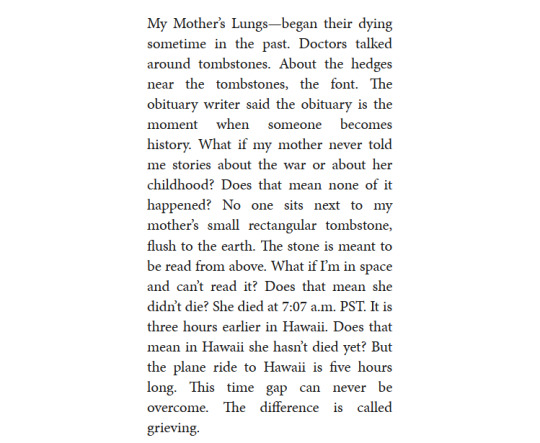
The difference is called grieving. I think this is the space that Eternal Yesterday occupies. It uses magical realism to forcibly extend the period before reality and grief can fully set in. Mitsuru is desperately clinging to the moment of before, when Koichi hasn't actually died yet, because once he leaves that moment he can't go back.
In the moments before the truck driver comes and sees the body, Mitsuru is in a state of denial, an impossible version of events in which Koichi survived the impact and being thrown in the air for meters, even though all the evidence points to his death. He calls his name, expecting him to just wake up. The truck driver's reaction cements the truth of his death that Mitsuru could not even let himself imagine in those first few moments. There's a moment where we can see the flicker of horrific recognition on Mitsuru's face. But then Koichi starts moving again, and Mitsuru is once again in an impossible reality where Koichi can survive as the living dead, a miracle. Eternal Yesterday effectively resets the timeline to the moments before the death becomes real for Mitsuru.
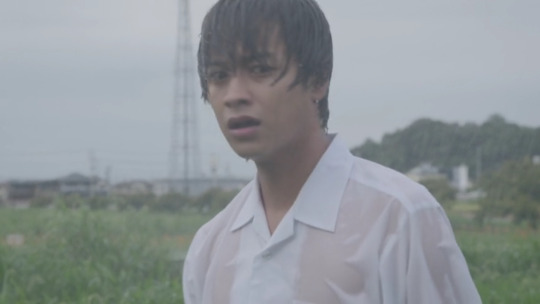
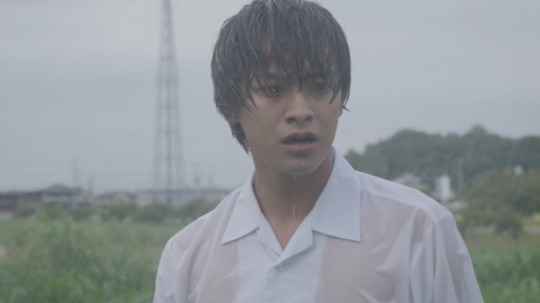
The rest of the story takes place within that moment, but elongates the stage of denial. It takes place outside of time. Koichi's body has disregarded time, the doctor tells them. It is staving off all actual evidence of decay, but it doesn't erase the damage that has already been done and the bruises and cuts remain as a terrible reminder. This really effective element of body horror forces the audience and the characters to sit in a very specific moment in time; this is not a ghost who has cast earthly wounds aside, nor a zombie who continues to decay. Koichi and Mitsuru are trapped in the moment of death, the eternal yesterday. Mitsuru isn't ready to let go yet, and neither is Koichi.
The drawn out nature of this undeath contrasts with how suddenly Koichi dies. Instantaneous (I think again of Koyczan's poem). There is no way for the characters to anticipate this death. Compare this to Mitsuru's mother, who was chronically ill, dying in a hospital away from her son in an attempt to insulate him from grief. But despite her prolonged illness and her distance from Mitsuru, it doesn't seem like Mitsuru was really able to process his loss, just creating a wall around it to protect himself. With Koichi's undeath, they get that extra time together, and maybe that helps in some ways. As @waitmyturtles writes, they get to spend those final moments together, knowingly, intentionally, in a way that Mitsuru only got with his mom after her death when he saw her ghost. The magic gives them back these moments.
At the beginning, it seems as if time has stopped for everyone around them as well, but slowly people start to not be able to see Koichi. They begin to move on, and forget. Koichi seems to have reconciled with this fact: "If you die, you're slowly forgotten. It's normal. The living are busy thinking of other living people." Mitsuru is angry at the thought that anyone could forget about Koichi, and that the signs of their forgetfulness are proof that Koichi is getting closer and closer to disappearing.
This is such a beautiful metaphor for how it feels to grieve someone when the rest of the world keeps spinning. Time has stopped for Mitsuru, but not for all his classmates, even though they cared for Koichi too. It's a cruel truth. Time starts to speed up again as Koichi begins to disappear in front of others, but Mitsuru is still clinging to him.
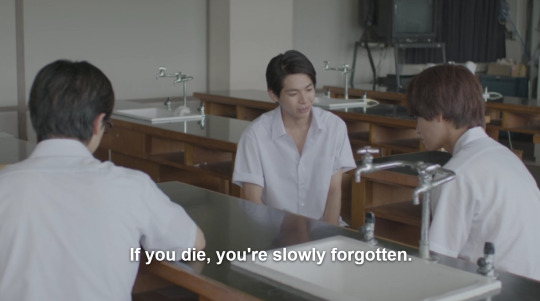
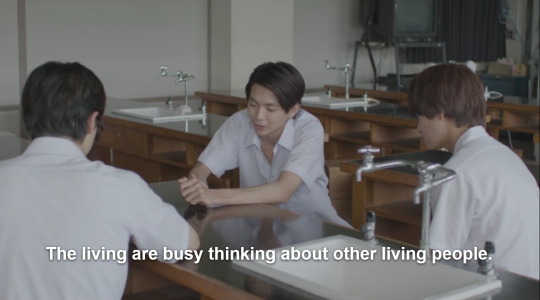
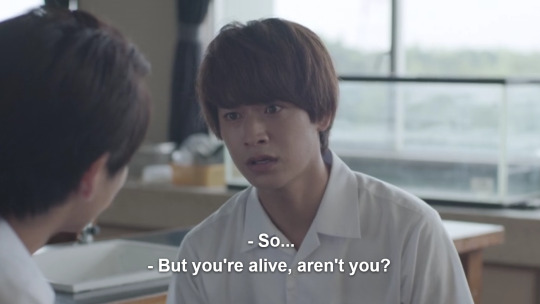
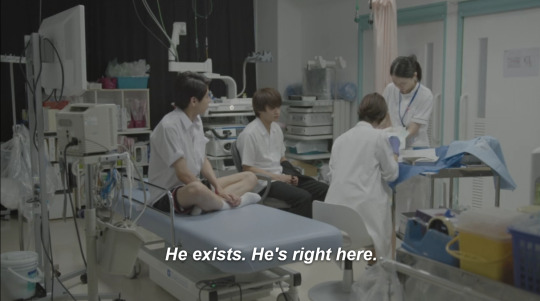
Mitsuru holds onto Koichi with both fists. There's anger behind his denial of Koichi's death. He repeatedly tries to remind Koichi that he's still alive, gets angry when he's referred to as dead, and when people can't see Koichi any more.
But it is Mitsuru's love that sustains Koichi for this long, and his unwillingness to let go of his memory. It seems like love itself is what keeps Koichi here. Even when he disappears for most people, Mitsuru and Koichi's family still see him. Even after Koichi truly dies, when he stops being a living corpse, we see that his memory does live on in Mitsuru, and in the lives of the other people who loved him. The teacher who sent Mitsuru a photograph that shouldn't exist. Koichi's friends and family continuing to honor and remember him, and staying in contact with Mitsuru.
@gillianthecat writes beautifully about Japanese dramas and the use of place and space. There's a quietness and a stillness often. Eternal Yesterday echoes this, and in some ways turns time into a place, anchoring the drama to a liminal threshold, the pause that allows Mitsuru and Koichi to process what has happened.
Koichi and Mitsuru's story takes place outside of time. The editing and structure of the show also interrupts the linearity of time. Multiple times we are shown the end of a scene, and then shown its beginning scenes or even episodes later. The show revisits scenes, recontextualizes them, like when they get back from the hospital and Koichi admits he's scared that he's a corpse; the teachers in the stairwell we later learn were found in the aftermath of their breakup. Koichi is hit by the truck in the very opening of the show, but we don't see all of it until the end of the episode and the beginning of the next. Through this editing, the show destabilizes time, and calls into question our perception of events.
It also does this with the opening and closing credits. Each episode grounds the audience at the start in a joyful past that the characters can never return to, and at the end in an impossible future that they will never see ("If we were adults, would we be making a toast and drinking beer?"). The show oscillates between these two endpoints, and they put the viewer off balance for what to expect. But at the close of the show, we see the camping scene recontextualized. Mitsuru is alone, but he still has pieces of Koichi with him. The false insinuation of a happy ending is replaced with bittersweet reality.
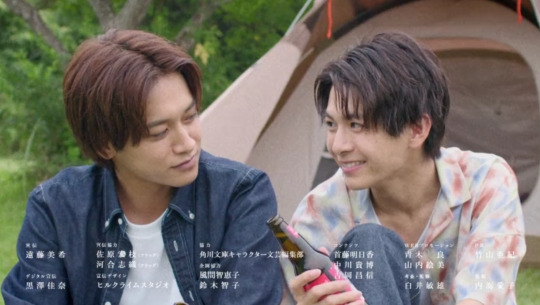
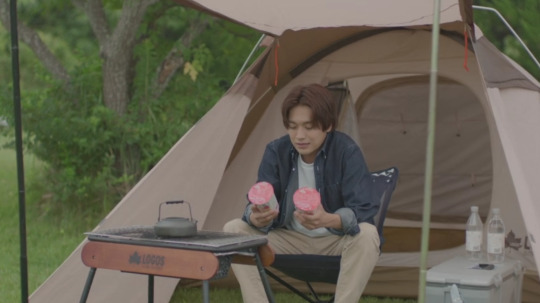
How long does it take to grieve someone? Does it ever stop? Their teacher is still mourning his boyfriend's death 20 years later. Mitsuru is shown grieving 5 years after Koichi's death. He tells us his sadness never went away. The experience of grief is different with that distance, but it doesn't disappear. The show invites us to sit in a specific moment of that grief, but it shows us also how it continues afterwards.
Koichi's death is drawn out, the stage of denial extended, but eventually time catches up with both of them. Koichi knows it ("My time is almost up"). Mitsuru begins to understand it ("Isn't it just a matter of time?"). The day Mitsuru's home sick, "the time felt too long." The dissonance between this piece of time that they have carved out for themselves and the reality of time's continual passage becomes impossible to ignore.
Koichi lingering as a living corpse gives both him and Mitsuru a bit more time together. Even if it's just a few days, there's beauty in that. Because of that time, Koichi gets to hold his newborn sister. He gets to be a part of that moment with his family. Koichi and Mitsuru get to love each other for just a little longer. They get to say goodbye.
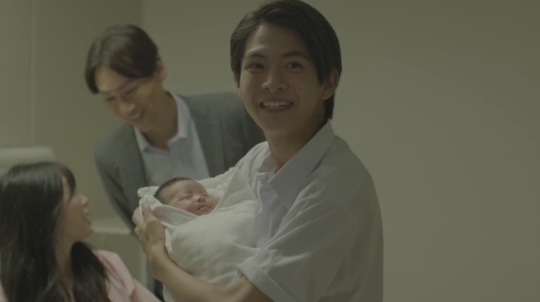
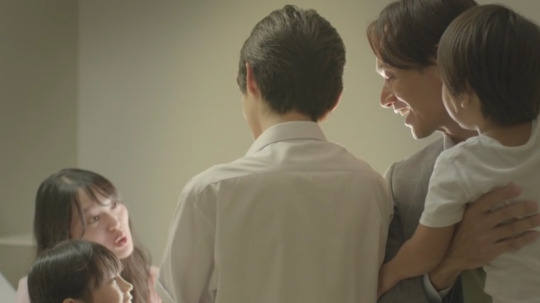
This is a sad show. But it's okay to be sad sometimes. It's okay to explore this sadness is art, in queer art. It can be healing to sit in these emotions for a little while, like Mitsuru and Koichi do in the show. To take the time to process it and connect with these stories.
Thank you to @bengiyo's post and the podcast for putting a new favorite show on my radar, and @lurkingshan and @waitmyturtles for sharing their thoughts and love for the show.
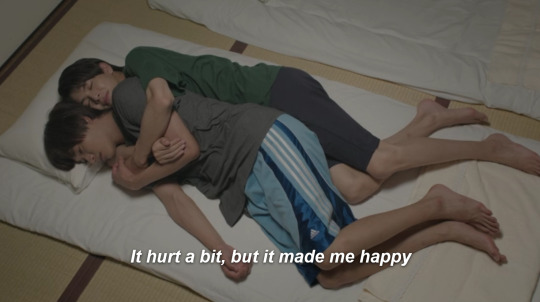
#eternal yesterday#eien no kinou#eternal yesterday meta#japanese bl#thinking thoughts#i have so many thoughts about this show I haven't even touched on materiality here yet#this show is phenomenal I'll be thinking about it for a long time#what is it with grief portrayed through supernatural and poetry for me?#the surreal nature of loss and grief maybe#thank you to anyone who reads all of this#it's a heavy topic but I needed to get my thoughts out
94 notes
·
View notes

